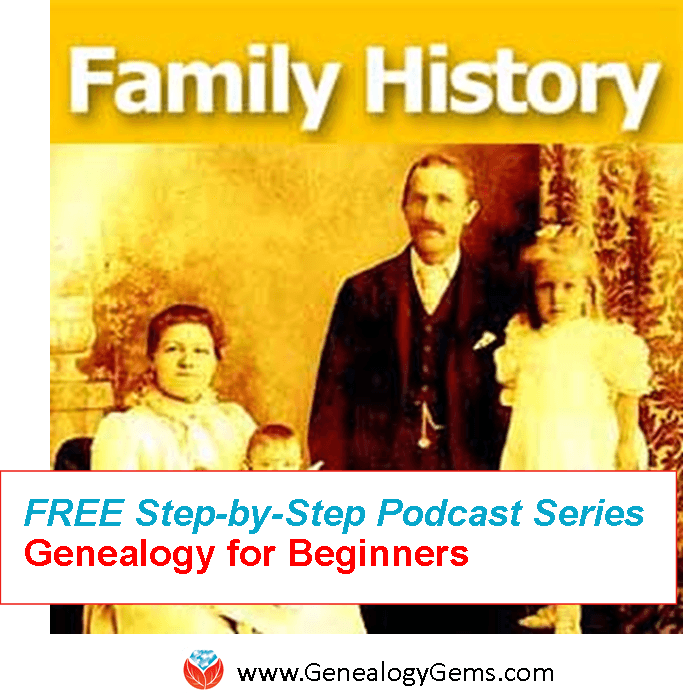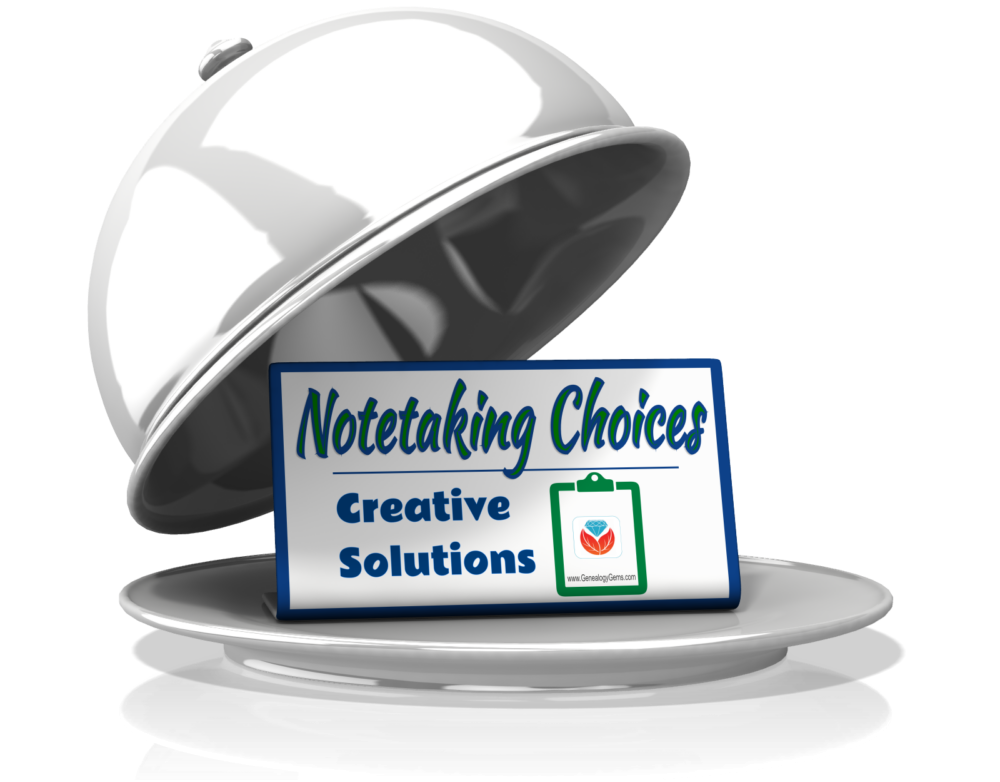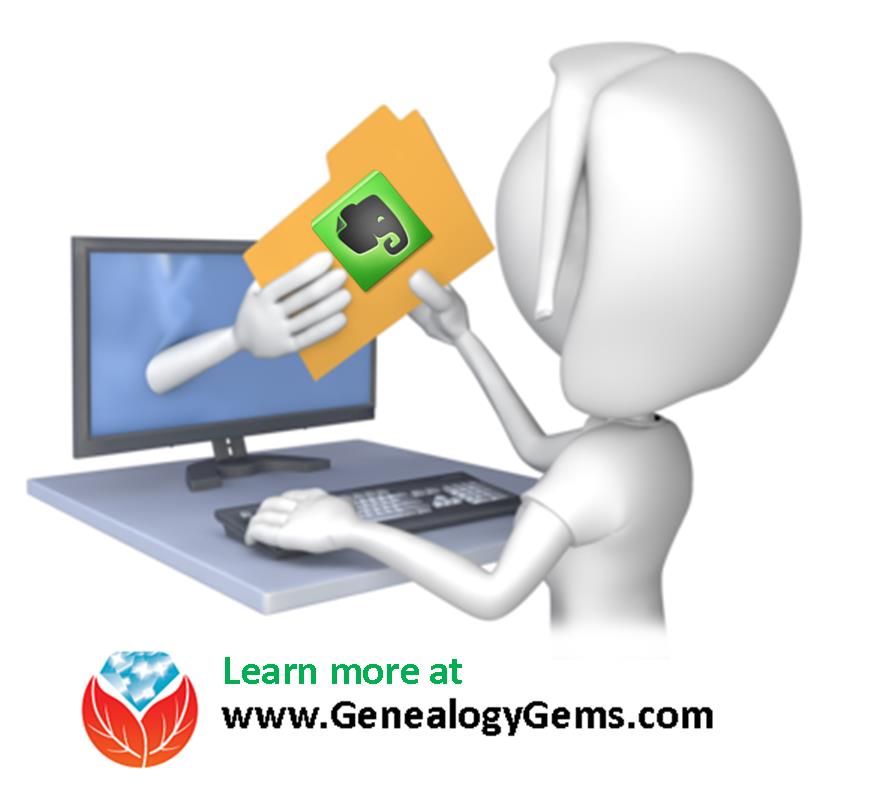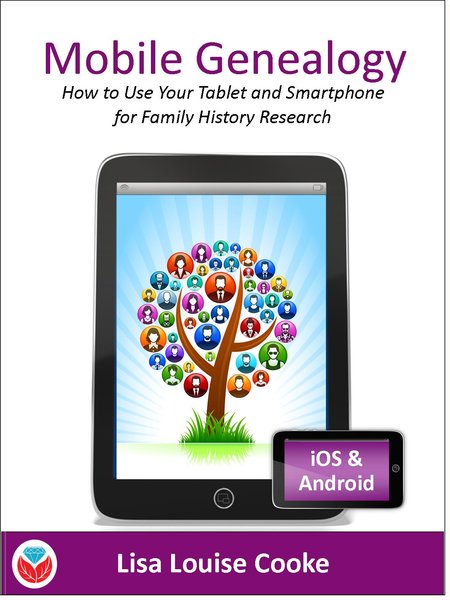by Lisa Cooke | May 8, 2015 | 01 What's New, Australian, British, Canadian, Church, images, Newspaper, Records & databases, United States

Every Friday, we blog about new genealogy records online. Might any of these collections include your ancestors? Today: English and Welsh Quaker vital records, Newfoundland censuses, New York marriage record, Nova Scotia deaths, Queensland wills and Pittsburgh newspapers.
ENGLISH AND WELSH BMD. Quaker birth, marriage and burial records from England and Wales, 1578-1841, are now available to FindMyPast subscribers. Quakers were formally known as the Society of Friends, a nonconformist religious group who practiced their faith outside of the established Church of England during this time.
NEWFOUNDLAND CENSUSES. Over a quarter million indexed records have been added to free existing databases of Newfoundland, Canada censuses for 1935 and 1945 at FamilySearch.
NEW YORK MARRIAGES. Nearly 640,000 images have been added to a free FamilySearch collection of New York marriage records (1847-1848, 1908-1936). The collection is only partially indexed, but you can “scroll through” images online, much like you would on a microfilm reader.
NOVA SCOTIA DEATHS. Nearly 350,000 indexed names and over a quarter million images have been added to free FamilySearch databases of Nova Scotia deaths from 1890-1955 and 1956-1957.
QUEENSLAND (AU) WILLS. More than 45,000 wills from Queensland, Australia are now indexed for FindMyPast subscribers. The database covers nearly a century: 1857 to 1940 and includes name and year of death.
PITTSBURGH NEWSPAPERS. Newspapers.com and The Pittsburgh Post-Gazette have partnered to put issues of that paper online (1877-1921). “If you take into account the earlier papers that evolved into The Pittsburgh Post-Gazette (like The Pittsburg Post, The Pittsburgh Gazette, and others—also on Newspapers.com), you’ll find issues dating back as far as 1786,” says a news release. “That’s 135 years of Pittsburgh history!”

Here’s a tip: Most databases, even those with thousands of names in them, are incomplete. If you don’t find an ancestor in a record set in which they should appear, double check the record set description to see whether the years you want might not be included. Search on multiple name spellings, nicknames and initials, as well as for the names of other relatives. Page through any images online. Search that same website (and others) for additional record sets that may cover the same time frame and place. Finally, ask yourself why they could be missing from the records and follow up on logical lines of inquiry. This tip comes to you courtesy of the newly-revised and updated 2nd edition of The Genealogist’s Google Toolbox by Lisa Louise Cooke, which teaches you how to harness the powerful, free features on Google to find your ancestors.
by Lisa Cooke | Apr 1, 2014 | 01 What's New, Beginner, Family History Podcast, Vital Records

Listen to the Family History: Genealogy Made Easy podcast by Lisa Louise Cooke. It’s a great series for learning the research ropes and well as refreshing your skills.
Family History: Genealogy Made Easy Podcast
with Lisa Louise Cooke
Republished April 1, 2014
https://lisalouisecooke.com/familyhistorypodcast/audio/fh25.mp3
Download the Show Notes for this Episode
Welcome to this step-by-step series for beginning genealogists—and more experienced ones who want to brush up or learn something new. I first ran this series in 2008-09. So many people have asked about it, I’m bringing it back in weekly segments.
Episode 25: Using Civil Birth Records in Family History
In our last episode we covered marriage records. We finish up vital records in this episode by going back to the beginning: birth records.
There are two major categories: civil and church records. Today I’m bringing in professional genealogist Arlene H. Eakle, PhD, who will helps us to see the challenges we face and the success we can have locating civil birth records. (In Episode 26, Arlene will join me again to walk us through the world of church birth records.)
Here are some take-away tips from our discussion in this episode:
- When you start researching in a new area, learn when government birth records began to be kept. Every state and some cities began birth registration at different times. Today, in some states you order records before a certain date from the local government and more recent ones from the state vital records office. Do your research! Start with this Vital Records Chart from Family Tree Magazine.
- In the U.S., most government birth records were kept by the county, except in New England and independent cities. In the 20th century, the state took buy medication cart over jurisdiction of vital records in most states.
- Birth records often have the names of parents and child and the place and date of birth. You may also find parents’ birthplaces, marital status of parents and even the date of marriage.
- A single locale may have logged births in multiple sources, for example, for those who lived in or outside the city limits, or segregated records for blacks.
- The actual birth record may have been logged as part of a list of names on a columned form. Birth certificates are a modern thing!
- Some records have been digitized and indexed or microfilmed. Check the Family History Library catalog on FamilySearch.org first. If they have birth records, they’ll tell you whether they’ve been digitized or indexed on their site, or whether they’re available on microfilm.
- Of course, many birth records are also available on subscription websites like Ancestry.com, FindMyPast.com, MyHeritage.com and more. If you are a subscriber, check their online holdings, too.
- When ordering a birth record from a government office, they may type up a certificate to send you. That’s nice, but also ask for a photocopy of the original birth entry or record. There’s often more on the original record than the certificate—and you’ll minimize errors by looking at the real record.
Arlene H. Eakle, Ph.D., is the president and founder of The Genealogical Institute, Inc. and a professional genealogist since 1962. She holds both MA and Ph.D. in English History and an Associate degree in Nursing.
by Lisa Cooke | Sep 3, 2016 | 01 What's New, Evernote, Mobile |
(UPDATED May 22, 2020.) Is your head swirling with questions such as Evernote vs. OneNote? Or are you wondering about free vs. paid accounts? These are common questions and I have some uncommon, but very effective, solutions for you! Here’s an email I received recently from a Genealogy Gems Premium member on just these questions and the solutions I dished up to answer them.

Sherri’s Dilemma and Questions
Sherri wrote in with a question I frequently receive:
“I have been a very satisfied Genealogy Gems Premium member for a few years now. Given the recent limitations on the free version of Evernote only to be used on two devices, how does OneNote compare to Evernote?
I use Evernote on my desktop PC, my laptop, my iPad, and my iPhone. Now, I have to choose which two devices to use it on (to stay with the free version.)
Sometimes I use my laptop and sometimes I use my iPad when I am out. Other times, I might be somewhere unexpectedly and only have my iPhone with me. And of course, most of my computing is done at home on my desktop PC so I must have it loaded there. What a dilemma!
Since I am on a limited fixed income, I can’t afford to pay to add devices for my notes. Luckily for me, I have only begun to get “addicted” to using Evernote and only have 224 notes so far. If I need to transfer to another application, it would be much easier to do it now rather than later.”
A short while later I received this follow up email from Sherri:
“Hi, Lisa. Me again.
I do listen to you, but sometimes I panic and scream for help before calming down and remembering your advice. LOL
I took your advice and searched YouTube for “Onenote vs Evernote.” I found a couple of very good videos by dottotech. His comparison videos are “Evernote vs OneNote – 5 Key Differences” and “Evernote vs OneNote Follow Up Q&A – ADT 28.” I was hoping he would compare the free version of Evernote with the free version of OneNote. He made a big deal out of the searching capabilities of Evernote over OneNote, but the new basic Evernote doesn’t search text in PDFs or in Office docs (per Evernote’s feature comparison). Also, you really have to rely on having really good tags [to find what you are looking for.]
The new Basic plan only OCRs text in images. That being the case, it seems the searching on text capabilities are better in OneNote, but the tag feature in Evernote makes it more robust. Too bad OnNote doesn’t have tags or keywords or something to categorize the notes. It does, however, have the ability for more notebooks and sub-notebooks than Evernote does and lets you organize like you would paper. That would be an attractive feature for many.
He did give me a good idea in his video. He suggested we keep the Evernote app on our mobile devices and use Evernote in the browser on our PCs and laptops. That just might work for me, but I don’t like Evernote’s user interface on the browser. I don’t know if I can work with it that way.
My biggest concern with OneNote, however, is that it uses OneDrive for the cloud syncing part. I received an email from Microsoft that on August 10 [2016], my free OneDrive storage will be reduced from 30 GB to 5 GB!
I spent a lot of time reducing my used storage to 4.4 GB. The biggest thing I use it for is to store the media files that my RootsMagic file links to so that I will have them available from my laptop or iPad. I also keep my RootsMagic family file in Dropbox so that the RM app will always have the most current data, rather than having to remember to copy it to Dropbox after each use.”
Evernote vs. OneNote
I totally feel your pain and understand your dilemma. In the last decade of tech in particular, the “freemium” model has been used by many online services (websites and apps). The intent is to get folks to try their service, and hopefully love it, so they will want to pay for richer features. After several years, the pressure is on to pay back investors and sometimes just simply stay afloat. It is then that the right to change the terms gets invoked. You cited two great examples: Evernote and OneDrive.
As a small business owner myself, I can appreciate the need to stay afloat so that you can continue to provide quality services to people who need them. That’s why, with my top favorites in tech, I take the plunge and pay for the upgrade in service if I possibly can. I figure that I’m helping them to keep doing what they are doing and I will reap the benefits. But, we all have our economic limits and sometimes we have to get more creative in order to continue using the services.
One of the first things to consider when choosing between Evernote and OneNote is each company’s focus. Evernote is in the business of cloud note-taking. It’s all they do, and all of their resources are invested in the Evernote product. By comparison, OneNote is just one small program under the massive Microsoft umbrella. Cloud note-taking is not their core business. So on the score of company focus, Evernote comes out ahead.
The next thing to consider is whether or not your are a very heavy user of Microsoft products such as Word, Excel, and other programs. If you use these heavily in your research and work, then you might want to go with OneNote since it is built to coordinate with those products. If not, then again Evernote would be my choice, particularly if I already had my notes in Evernote. The good news is that in everyday use, you typically can’t go wrong with either.
You touched on something that differentiates Evernote from OneNote. Evernote limits how much you can upload each month (free=60MB, Premium=10GB), but there is unlimited storage. OneNote is connected to OneDrive with a free limit of 5GB total storage. Currently, you can get 50GB for around $2/month. (Of course plans can change, so check their websites for the most current pricing and limits.) I believe it may also be possible to connect OneNote to another storage service if you so desire. So, the way that you create notes could help you with the decision. A heavy note-taker would probably be better off with Evernote Premium with tons of monthly uploads and no storage limits. However, a lighter note-taker would probably save money with OneNote and the free storage of OneDrive. Check the current storage offering by Microsoft and OneNote here.
Free vs. Paid
If after careful consideration you decide to throw all your notes into the Evernote basket, then there is a decision to make: free vs. paid, and if paid, which plan? I bit the bullet and bought the Premium service which falls price-wise between free and Business. I want Evernote to stay around and considering how important my genealogy research notes and all the other notes in my life are, $7.99 a month seems like a bargain. With the Premium service, you get unlimited devices and your monthly upload soars from 60 MB to 10 GB. You just bought yourself a lot less stress and a lot more freedom to research genealogy.
If you feel it’s in your best interest to stay with the free version of Evernote, then I’ve got some creative solutions for you:
Creative Solution #1:
I suggest in my lectures that you can use your two allowed devices for those you use most often. For me, that would be my desktop computer and my phone. For you, it may be your phone and your laptop.
Remember, you can always use the website app at www.evernote.com in any web browser, both on a computer or mobile device, to access your notes. It does not count toward your device allowance. Like you, I prefer the desktop software and app over the website version, but it does do the job.

We’ve got you covered on Evernote for Genealogy
Creative Solution #2:
If you have a tablet and a phone you may be tempted to make them your two free devices and then use the web version of Evernote on your home computer. However, while you may carry your tablet with you much of the time, you probably always carry your phone with you. With a two device limit, having both of your mobile devices be the primary devices using the app is pretty redundant and unnecessary. Instead, consider having your phone (which you always carry,) and your home computer or laptop (which you likely use a lot) be your primary devices.
If you don’t want to use your browser on your tablet, I have a solution for you straight out of my book Mobile Genealogy: How to Use Your Smartphone and Tablet for Family History Research. You can use the free Chrome Remote Desktop to remotely access and use your home computer from your tablet and smartphone. Get it here for Android, and here for Apple devices.
How to set up Chrome Remote Desktop access:
- Start on the computer that you are going to access remotely.
- Open the Chrome browser.
- Go to https://remotedesktop.google.com/
- Click the Get Started button and follow the instructions.
- Leave your computer one and connected to the internet. It’s OK if your computer goes to sleep when you’re not using it. When you remotely access it, it will “wake up.”
- After setting it up on your computer, download the Chrome Remote Desktop app on your tablet or phone from the app store.
- Connect the app to your home computer following the Chrome Remote Desktop instructions. (Your tablet will need to be connected to the internet for it to work.)
Now when you want to use the Evernote software on your home computer, you can gain remote access to it on your tablet using Chrome Remote Desktop. You’ll be able to do everything you want to do on the Evernote software from your tablet. You will also be able to access all of those notes later on your phone or through your tablet’s browser with evernote.com.
This handy solution is going to solve your challenge with the size of RootsMagic genealogy database files. Since you can now access your computer remotely with your tablet, there’s no reason to keep the file on OneDrive! (But please do be sure that your computer is backed up! I recommend and use Backblaze. Click here for more info on that.) You can now work directly on your RootsMagic software even from your tablet or smartphone. Isn’t technology fabulous?
I hope these ideas help you make the decision that is right for you and right for your family history. My personal goal, and our goal here at Genealogy Gems, is to help you succeed in the pursuit of your family history!
Resources
Book: Mobile Genealogy by Lisa Louise Cooke available at the Genealogy Gems Store.

Book by Lisa Louise Cooke
Video: Evernote for Genealogy: What It Is, & Why You Would Use It at the Genealogy Gems YouTube channel.
Genealogy Gems Premium Video Classes by Lisa Louise Cooke:

Members have access to hundreds of videos, downloadable handouts, and exclusive podcast episodes.
All of these videos are available to Genealogy Gems Premium Members. Sign up and gain access here.







